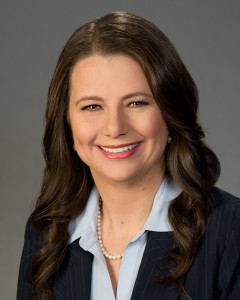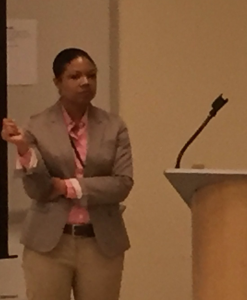Atlanta’s “Executive Session” Ruse Unravels: Closed Meetings Unjustified, Withheld Records Show
 (APN) ATLANTA — In order to shield their discussion of a controversial ordinance that they knew violated state law, Atlanta City Councilmembers closed two committee meetings to the public and went into Executive Session on Feb. 11 and 12, 2020.
(APN) ATLANTA — In order to shield their discussion of a controversial ordinance that they knew violated state law, Atlanta City Councilmembers closed two committee meetings to the public and went into Executive Session on Feb. 11 and 12, 2020.
Now, Atlanta Progressive News has learned that their claims that the closed meetings were justified by “threat of litigation” were, in fact, false.
The Executive Sessions are one of the subjects of a lawsuit by APN’s News Editor against the City of Atlanta under the Georgia Open Meetings Act and Georgia Open Records Act: Cardinale v. City of Atlanta, 2020-CV-332834, which is before Fulton County Superior Court Judge Kelly Lee Ellerbe.
Atlanta City Councilman Matt Westmoreland (Post 2-at-large), who chairs the Community Development/Human Services Committee; and Councilwoman Jennifer Ide (District 6), who chairs the Finance/Executive Committee, swore out affidavits on the same dates, attesting that the meetings were closed so they could discuss what they claimed to be a “threat of litigation.”
 The City has admitted that the general topic of discussion in the closed meetings was City of Atlanta Ordinance 20-O-1155. This ordinance, approved by the Council in a vote of thirteen to two, purports to require residential lessors in the City of Atlanta to accept vouchers from a housing authority.
The City has admitted that the general topic of discussion in the closed meetings was City of Atlanta Ordinance 20-O-1155. This ordinance, approved by the Council in a vote of thirteen to two, purports to require residential lessors in the City of Atlanta to accept vouchers from a housing authority.
The problem is, as previously reported by Atlanta Progressive News, the ordinance is clearly preempted by state law and therefore illegal under Georgia law.
The City of Atlanta has acknowledged this preemption several times, including in an amendment to the ordinance drafted by the law department but not passed.
But the Council passed the ordinance anyway, after discussing the illegality of the ordinance in its two closed meetings.
As previously reported by Atlanta Progressive News, the Executive Sessions were highly suspicious because there were no known threats of litigation regarding 20-O-1155.
In fact, the general public opinion about the ordinance was positive. With the exception of APN’s coverage, all the other news media regarding the ordinance was glowing and did not mention the state preemption issue.
Even the Atlanta Apartment Association did not seem eager to challenge the ordinance because it was so politically popular, despite also being aware of the preemption.
So, APN’s News Editor raised concerns about the Executive Session being closed,, saying it was an apparent abuse of the Georgia Open Meetings Act, which requires agency meetings to be open to the public.
APN’s News Editor amended an existing lawsuit against the City on Feb. 14, 2020, to include the Executive Session claims.
 In addition, APN’s News Editor has made numerous records requests to Senior Assistant Attorney Amber A. Robinson, the Records Coordinator for the Law Department, for copies of whatever threatening communications the City has received regarding 20-O-1155.
In addition, APN’s News Editor has made numerous records requests to Senior Assistant Attorney Amber A. Robinson, the Records Coordinator for the Law Department, for copies of whatever threatening communications the City has received regarding 20-O-1155.
That is, the City claims to have been threatened with litigation. We want to see the threats.
In several responses to the several requests, Robinson claimed that the records existed but were exempt from production due to “attorney-client privilege” and “confidential attorney work product.”
These responses were even more suspicious. Because, why would a litigation threat–from whoever the threat was from–to the City, be an attorney-client communication?
To be sure, if a Councilman received the litigation threat and forwarded it to the Law Department, then the forwarding email would be an attorney-client communication, but the original threat would not.
As for the “work product” exception, that did not make sense either. Because, why would a litigation threat–from whoever the threat was from–to the City, be a product of the work of the attorney?
To be sure, if the Law Department wrote a memo about the threat, then the memo would be a work product, but the original threat would not.
In an October 09, 2020 supplemental response to a discovery request for the same records, provided by Michael Jones of the Bondurant Mixson & Elmore law firm, the City of Atlanta now has provided the two so-called threats.
Both so-called threats have been revealed to be emails from APN’s News Editor to the City Council, neither of which actually threatened litigation.
One of the emails was an email from APN’s News Editor to Atlanta City Councilmembers and staff containing a copy of the APN article regarding 20-O-1155 being preempted by state law.
The City relied solely on this article as a threat of litigation to enter into Executive Session on Feb. 11, 2020, the first closed meeting, even though the article contains no threat and merely states that 20-O-1155, as a point of fact, is illegal.
Here is the link, again, to the article:
http://atlantaprogressivenews.com/2020/02/07/atlanta-ordinance-to-require-voucher-acceptance-preempted-by-state-law/
The City relied on a second email sent on the morning of Feb. 12, 2020, in addition to the first email, to go into the second Executive Session on Feb. 12, 2020.
The second email sought an advisory opinion from Attorney General Chris Carr regarding the legality of 20-O-1155. It, also, was not a threat of litigation. Even if Mr. Carr provided the advisory opinion, it would not have been a judicial action either. [Carr replied, instead, that he cannot issue advisory opinions in response to requests from members of the public, only from the State of Georgia.]
Attorney Mr. Jones wrote that these two emails are the only threats of litigation received by the City of Atlanta.
If these are the only threats of litigation received by the City of Atlanta, then it appears that Councilmembers Westmoreland and Ide falsely attested to the closure of the meetings being justified by threat of litigation.
The Court of Appeals of Georgia has defined what threat of litigation means in Georgia. It must be “real and tangible,” not “remote and speculative,” per Claxton Enterprise v. Evans County Commissioners.
The Court of Appeals has provided three primary examples of “real and tangible,” none of which are satisfied here: (1) a formal demand letter or comparable writing, (2) previous, preexisting, or ongoing litigation concerning similar claims, or (3) proof that a party has retained an attorney.
An article in an online news service reporting upon the illegality of an ordinance is not a formal demand letter; nor is email to the attorney general requesting an advisory opinion a formal demand letter. There is no litigation concerning similar claims. And APN’s News Editor has not retained an attorney (but represents himself).
If allowed to stand, the City’s theory would set a dangerous precedent: It would mean that a government agency gets to discuss an illegal action they’re planning to take merely on account of the action being illegal and at least one person communicating to them the fact of the illegality.
So much for “real and tangible.”
As to Senior City Attorney Amber A. Robinson’s withholding of the records in response to several records requests, in which she claimed that the “threats of litigation” were protected from disclosure by attorney-client privilege and attorney work product, those claims now appear to be deceptive.
After all, an email from APN’s News Editor to Councilmembers containing an APN article is not an attorney-client communication, nor is it an attorney work product.
Nor does an email from APN’s News Editor to Attorney General Chris Carr requesting an advisory opinion, comprise an attorney-client communication between the Department of Law of the City of Atlanta and its client.
Further, Robinson’s statements appear to be a frustration of access to records, in furtherance of a deliberate attempt to conceal the City’s flimsy justification for closing its meetings so that it could discuss their illegal ordinance in private.
The pending lawsuit seeks for Judge Ellerbe to inspect both the Feb. 11 and 12, 2020 Executive Session Minutes; and the “threat of litigation” records withheld by Ms. Robinson, to determine whether the closure of the City Council’s Committee Meetings were proper, and whether Robinson’s withholding of the records was proper.
The lawsuit, which also raises other open records violations by the City, also seeks for the Court to order the City of Atlanta into a Consent Decree regarding open records and open meetings.
https://www.wsbtv.com/video/local-video/judge-allows-activist-citizen-seek-1000-mayors-press-secretary-lawyer/ff0b0f11-ea1a-4337-b9a8-76125d2bb2ef/
(END / Copyright Atlanta Progressive News / 2020)